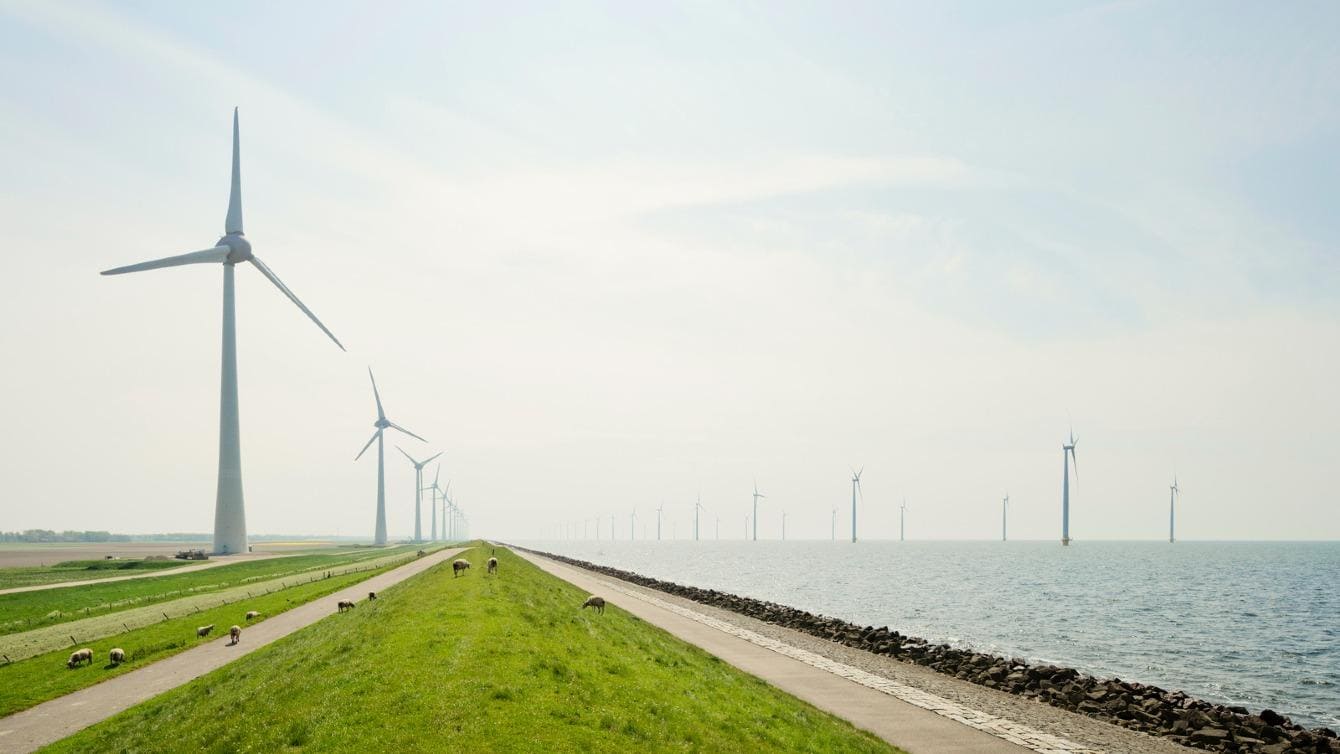Considering these insights, the publication ‘The Netherlands - What went well: balancing decarbonisation with economic growth’ highlights the significant historic successes achieved in our energy transition. This research aims to shift the narrative away from doom and gloom, showcasing the positive strides made by the Netherlands since the Kyoto Protocol in 1990.
‘We are often overwhelmed with reports and news articles focusing solely on what’s going wrong regarding the energy transition in the Netherlands. Net congestion, delays in investments, and high costs,’ Tezel sums up. Both Tezel and Seemann believe it’s time to change that narrative. Tezel: ‘If we only dwell on the negatives, it can lead to a sense of hopelessness. Our research is aimed at celebrating the progress we've made and reinforcing the idea that we can indeed achieve our goals and solve our challenges’.
Tezel wants this research to inspire people to stay optimistic despite challenges. ‘We want to acknowledge the good work of business leaders, politicians, civil servants, NGOs, and citizens driving change.’
Key research findings
The research highlights several important achievements that showcase the Netherlands as a leader in balancing economic growth with decarbonisation. The findings decisively demonstrate that – till now – sustainable advancements have been realized without sacrificing economic prosperity.
1 Decoupling GDP growth from carbon emissions
The Netherlands has accomplished a stunning 65 percent reduction in emissions per GDP since the Kyoto Protocol in 1990, showcasing that economic development and decarbonisation can coexist. ‘The most striking finding for me was the ability of the Netherlands to simultaneously achieve world-leading GDP growth and world-leading decarbonisation. Traditionally, you hear the argument that being green comes at a cost, but the Netherlands defied that notion up to now’, Seemann notes.
‘Some of the emission reduction in the Netherlands is due to the relocation of manufacturing to low-cost countries of course. However, countries like the US have also experienced similar changes in their economic structure and yet our emission reduction rates are higher’, Tezel adds.
2 Impressive economic growth
The Dutch economy has thrived, achieving a GDP per capita of $71,000, an increase of 64 percent compared to 1990, closely matching that of the US. Tezel: ‘The fact that we are growing economically while emissions are decreasing is super impressive. Our economic growth rate is comparable to the US, but we have achieved that with a much stronger decrease in emissions. That is something to be proud of.’
3 Declining carbon intensity of energy generation
In the realm of energy generation, the Netherlands has cut emissions by 32 percent, setting a benchmark ahead of both the EU and the US. According to Tezel the Netherlands is also doing a great job in international comparison. ‘The decrease of the emission intensity in the Netherlands is among the highest in our comparison.’
4 Leadership in renewable energy
By 2023, the Netherlands generated 1200 kWh per capita from solar energy, two times the EU average, alongside 1644 kWh per capita from wind energy, which is 60 percent higher than the EU average. ‘We have been able to increase solar and wind penetration per capita quite impressively. This isn’t just data; it tells a story of commitment’, Tezel emphasises.
The Role of Policy in Driving Change
Though Tezel and Seemann applaud the willingness of Dutch consumers and businesses to embrace innovation, they both emphasise the pivotal role of policy in driving these transformations. ‘Effective policies fuel progress. The research shows that policy works, so we need the commitment from our policymakers’, Tezel adds.
‘Let’s not forget what we achieved till now and meet the future challenges with optimism.’
Gulbahar Tezelpartner, Lead Think Tank Energy Transition, Strategy&Embracing Challenges with Optimism
While acknowledging the hurdles that lie ahead, such as network congestion and permitting delays, both Tezel and Seemann remain hopeful. ‘Challenges are real, but they shouldn’t overshadow our achievements,’ Tezel stated. ‘If we dwell solely on our hurdles, we risk missing the bigger picture.’
Letting ambition meets action
The results show what is achievable when ambition meets action. For those eager to explore the findings, the complete research deck is available for download.
Contact us

Gülbahar Tezel
Partner Strategy&, Lead Denktank Energietransitie, PwC Netherlands
Tel: +31 (0)61 391 56 71
















